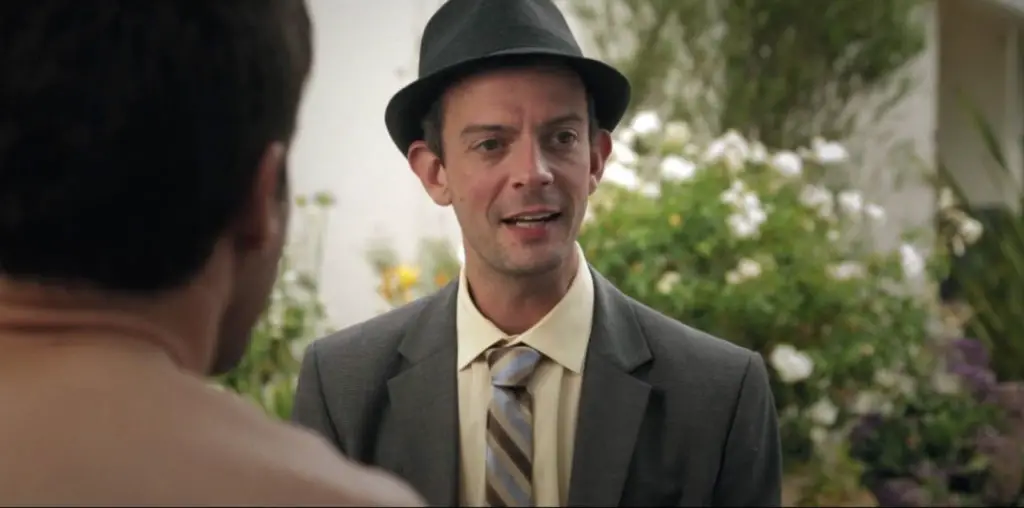
George Hencken’s documentary feature, Soul Boys of the Western World, tells the story of ’80s music icons Spandau Ballet. An eclectic mix of musical tastes that came together to make something wholly unique, yet still definitively ’80s, Spandau Ballet is probably best known for their hit song “True,” though that is hardly the only chart-friendly single they had, with their influence extending into more than music, touching cinema, television and fashion in their heyday. Over the course of this film, we get the personal story of the individual band members, direct from their own mouths via voiceover narration, as we travel with them through the ’80s and beyond with the help of home films and videos, stills, professional recordings of performances, television appearances and the like.
And it’s quite the story of a pack of friends creating a music and style that was influential and memorable (and timeless; if Spandau Ballet re-released their pre-“True” catalog today, it’d fit right into contemporary radio). They say a band is like a family, but for the Kemp brothers this is especially accurate, with the remaining connections between bandmates often that of best friends. And like many a band that finds great success, they eventually were tested with various excesses, in this case potentially one of grandiose ego, and did not come out unscathed, with a nasty court case seemingly putting an absolute end to the band, and the close relationships formed over the years, in the late 1990s.
But that’s part of what makes the film fascinating, as we get to see footage that leads to these grander issues, and if folks aren’t directly addressing it in the footage of that time, it can still be seen on their faces. Or seen in the moments where the silences are louder. Maybe this is influenced by the band members recounting the situation in the audio, but I think you can see the cracks long before the break happened, if you’re looking. You can also see the sorrow that leads to reconciliation.
While the general structure of the documentary is Behind the Music-friendly (the rise, fall (or falling out) and redemption), the film separates itself from that pack in its execution and its key ingredient: copious amounts of personal and professional footage of the band over the years. Coupled with the narration straight from the band members’ mouths, it’s like having an extremely interesting friend share their best home videos with you. Sure, some stock footage rounds out the context, but the film is predominantly made up of still, video and audio from the band, or around the band, as they evolve over the years.
In that way, it’s like traveling back in time. Eschewing the talking head interviews scattered throughout many a documentary also allows the audience to focus in on the visual and, more importantly for a doc about Spandau Ballet, the music. The cinematic medium, long best utilized for show and not tell, is allowed to do just that (even though, technically, you’re being told quite a bit).
My only criticism of the film comes from that narration, not what is said or the like, but because I’ll admit to getting lost every once and a while, despite the filmmaker’s best efforts to let me know who is saying what and when. Often I’d be hearing one band member’s voice, then see footage of a different band member, and my mind would connect the two as the same person, even if a text notice on the screen told me otherwise. While often it doesn’t matter who is telling the story as long as it’s being heard, every once and a while an anecdote or personal point being made should be properly equated with the correct person doing the speaking, and I wasn’t always sure. In the more contentious moments, this is particularly important.
Or maybe it isn’t, and that’s the point. Maybe you don’t need to know who said what when, because this is a history of a band, and the conflicts are all (hopefully) water under the bridge by now. Faceless narrators blending into one consistent voice of Spandau Ballet; I could be convinced of this.
Overall, Soul Boys of the Western World is a great primer for those who know nothing of Spandau Ballet, a nostalgic time capsule to those alive back then who vaguely remember such things and an absolute must-see for those fans of the band who have remained steadfastly loyal over the years. It’s not a story that is all roses and hugs, but it’s still a fun one to experience, and I enjoyed the more intimate look into the life and times of the band. And again, it’s that execution, the usage of more personal words, images and music, that helps the film excel; it’s not a bunch of surrounding context talking heads telling us how important Spandau Ballet is, it’s firsthand accounts and footage where we can make up our own minds. And hopefully that leads you to checking out the rest of their music, because it did so for me, and they’re much more than just the band that brought us “True.”

I was (still am) a huge fan of the group…how can I see this film?